Welcome
....to JusticeGhana Group

JusticeGhana is a Non-Governmental [and-not-for- profit] Organization (NGO) with a strong belief in Justice, Security and Progress....” More Details
Ghanaians move on after shattered migrant dreams
- Details
- Category: The World
- Created on Monday, 27 April 2015 00:00
- Hits: 5309
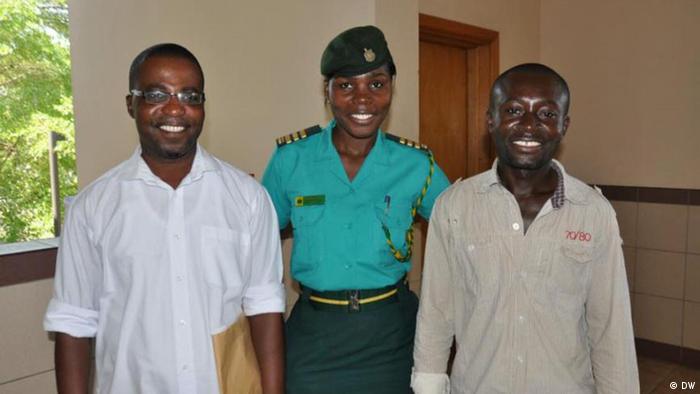 Ghanaians move on after shattered migrant dreams
Ghanaians move on after shattered migrant dreams
The European Union wants to boost Mediterranean sea patrols to try and prevent further loss of life among migrants desperate to reach Europe. In Ghana, a group of ex-migrants has a simple message. Stay at home.
35-year-old Ghanaian Eric Opoku Ware began dreaming at an early age of the life he would like to lead in some more glamorous, prosperous corner of the world.
"When I was in school, I had classmates who had parents abroad and they came with nice stuff. It enticed me it induced me, to say one day, I have to travel abroad," he told DW.
Ware didn't have a family member abroad to sponsor him and attempts to secure a visa for Europe led nowhere. Opting for the illegal route, he left Ghana for Libya in the year 2000.
"The journey was very dangerous. As a matter of fact, I wanted to turn back, but I had taken a decision. Eating - we couldn't even eat, all that we needed was water, we drank urine along the line, we needed water so badly," he said.
The experiences of Ernest Lawey, another ex-migrant who returned home, were equally harrowing; the demands of the traffickers evidently extortionate.
"We started this journey from Ghana, Bawku to be precise, to Gabon, on long vehicles. We sat on top with the goods and we got to Gabon. There we had someone we called chief, [we were told] all those who go to Libya - they will stay with that person and he will be organizing. We will have some money you pay to keep you there, and you will pay again for directions," he told DW.

Rebuilding lives
Ware and Lawey were arrested by immigration officials in Libya and deported. They are now rebuilding their lives. Curiously, many of those who have returned from such failed trips have found that their lives in Ghana have improved in the meantime, Ware said. They now think they shouldn't have embarked on the trip in the first place and believe they can realize their ambitions at home.
Critics in Ghana say the government isn't doing enough to dissuade Ghanaians from undertaking such hazardous journeys, but the foreign ministry says officials are doing their best.
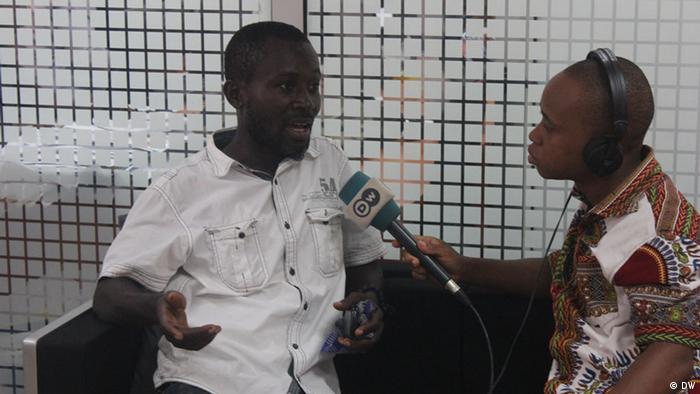
Ware and other ex-migrants have recounted their experiences in a television documentary which has been screened in various communities across the country.
Ware compares illegal migration and the deaths it causes at sea to malaria, road accidents and Ebola.
"Illegal migration should be preached about. Because it is killing a lot of people that people are not aware of," he said.
'I will go'
Ghana faces economic problems. The growth that propelled it to 'middle income' status in 2010 has stalled. The country faces high levels of public debt, a currency that has depreciated sharply, and an inflation rate that has risen to as high as 17 percent. The West African nation recently signed a deal for a bail-out loan from the International Monetary Fund.
It's amid this scenario that some Ghanaians wonder whether life wouldn't better elsewhere.
"I would like to go outside, especially to the developed countries. Ghanaian David Agblor said. "If I get the chance to go, I will go," Nii Allotey told DW.
Date 27.04.2015
Author Isaac Kaledzi / mc
Source: Deutsche Welle
Opinion: The great exodus
- Details
- Category: The World
- Created on Friday, 24 April 2015 00:00
- Hits: 4198
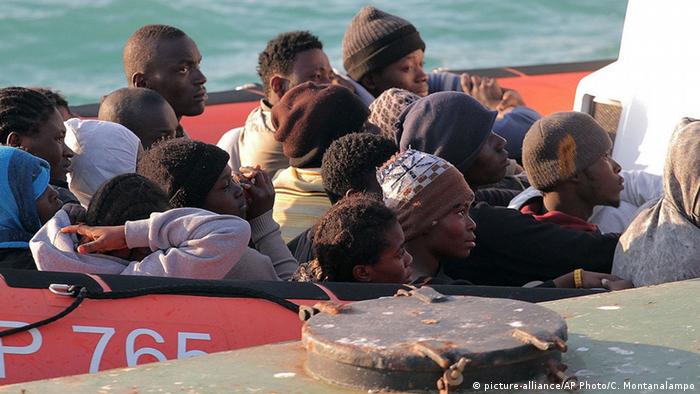 Opinion: The great exodus
Opinion: The great exodus
Every day, thousands of refugees head for Europe. Their hopes for a new life are greater than their fear of the passage across the Mediterranean Sea, writes DW's Alexander Kudascheff.
It's springtime, and again, refugees are making their way to Europe. The reasons are manifold: poverty - often abject poverty -, no education, no chance of a job. Then there are dictatorships, despots, torture, persecution, oppression, civil wars, regular wars and often a failed state where marauding gangs reign.
Sheer hardship and a sense of hopelessness are what drives people to flee their homes; to try for a new life in a foreign country, hoping for a modicum of luck. They come from many countries, including Eritrea, Somalia, Libya, Syria, Iraq and Afghanistan - that's not even mentioning the internal migration in crisis areas.
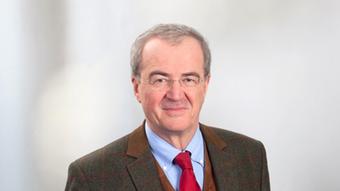 A cynical business
A cynical business
An estimated 50 million refugees are on the move. Their odyssee is perilous and often ends in death because they don't try to undertake the journey on their own but rely on smugglers to take them to the land of their hopes. The routes are often anything but straightforward, say from Syria via Turkey to Algeria, across the desert to Libya, and then on a boat to the continent of hope: Europe. Unless they are abandoned by the boat's crew and drown. This modern-day slave trade has become a billion-dollar business - brutal and cynical.
The refugees that make it to Europe are crammed into emergency shelters, sometimes they receive medial care, and often they face deportation within just a short period of time. Or they go underground and try to survive and even feed their families by taking on illegal, often dishonorable jobs and unskilled labor.
Some receive support and help from their own families, others are backed by volunteers who come to the newcomers' aid. Yet others depend on the goodwill of the states that grant them asylum. And many, very many, must return to the poverty and hopelessness they fled.
Small victories, major setbacks
DW presents a thematic week with an in-depth look at refugee movements - from people's departure from their homes to the actual journey and their arrival. We will portray the countries that refugees want to leave behind. We will portray the long, perilous and often deadly journey. And we will describe what refugees and asylum-seekers can expect in Germany and in Europe.
The reports will show the reality, the hopes, disappointments, the small victories and big setbacks, presenting people as well as politicians' helplessness. Taking in refugees, saving them from distress at sea - these are natural human duties. But it's just as true that not everyone who wants to come to Europe ca do so. The right to asylum is a sacred right. But in real life, it's currently being pummeled and overextended.
For hundreds of thousands of refugees on North Africa's shores, only one thing counts: the next boat to Europe. For them, it's all about arrival and surviving the passage.
Date 24.04.2015
Author Alexander Kudascheff / db
Source: Deutsche Welle
EU Commission charges Google with market abuse
- Details
- Category: The World
- Created on Wednesday, 15 April 2015 00:00
- Hits: 5793
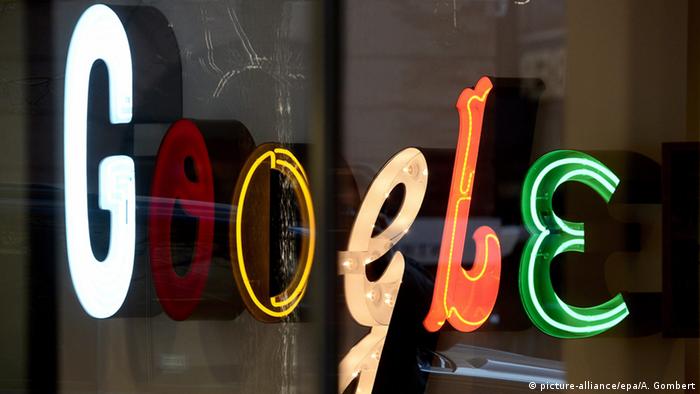 EU Commission charges Google with market abuse
EU Commission charges Google with market abuse
The EU Commission has filed a complaint against Google for allegedly misusing its market dominance for more revenue. If the EU wins, the US-based company could face fines and be forced to change its business practices.
European regulators announced on Wednesday a new attempt to decide whether Google's market dominance had violated EU anti-trust laws by rigging its search engine to favor its own online services at the disadvantage of competitors.
"Dominance as such is not a problem…however, dominant companies have a responsibility, not to abuse their power for market position by restricting competition either in the market where they are dominant or in neighboring markets," said EU Competition Commissioner Margrethe Vestager.
In most EU countries, Google accounts for roughly 90 percent of all online searches.
Citing preliminary investigations, Vestager pointed to an example of online shopping search results. Google's comparative shopping services appear to give systematic top placement on its page, showing that it is not subject to the same algorithm as other websites, according to her office's findings.
Googles' "dominance in one market is used to create advantage in another market, in a related market," she said.
The EU charges filed on Wednesday also announced the launch of a separate probe into Google's Android operating system, which is used on mobile devices around the world.
Fourth attempt at settlement
Vestager's predecessor, Joaquin Almuniaattempted to reach a settlement with Google on three occasions between 2010 and the end of his tenure last year. However, political pressure and privacy advocates hindered Almunia's bid to take legal action.
The latest attempt by Vestager comes amid high-level talks between Brussels and Washington as they work toward a transatlantic free trade agreement, known as TTIP. In showing their opposition to the EU's wish to launch a probe, US critics have pointed to the US Free Trade Commission's 2013 decision to end a probe into the company, saying it had found no significant misbehavior by Google.
However, the EU anti-trust regulator emphasized on Wednesday that the latest suit included convincing evidence gathered and reviewed since her tenure began last year.
"Google has very good products and I think that is important," she said. But the EU's objection was "for the sake of consumers and for the sake of innovation."
The US-based Internet giant could face roughly a fine of $6.6 billion (6.19 billion euros) if found guilty of rigging its search engine. It could also be subjected changes to its business practices within the EU.
kms/sms (AFP, Reuters)
Source: Deutsche Welle
Italy premier leads calls for EU action on Mediterranean migrant deaths
- Details
- Category: Current Issues
- Created on Monday, 20 April 2015 00:00
- Hits: 6387
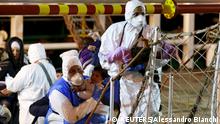 Italy premier leads calls for EU action on Mediterranean migrant deaths
Italy premier leads calls for EU action on Mediterranean migrant deaths
Italy's premier is leading calls for EU action, including a summit, on the increasing number of migrant deaths in the Mediterranean. EU foreign ministers are meeting to discuss the issue.
Following the latest sinking of a migrants' boat off the coast of Libya at the weekend, Italian Prime Minister Matteo Renzi has called for EU action on the issue.
EU foreign ministers are meeting in Luxembourg on Monday morning to discuss the crisis. They will also discuss the situation in war-torn Libya where up to 90 percent of the migrants begin their dangerous sea-journey to Europe.
Up to 700 people are feared drowned after their 20 meter (70ft) fishing boat sank late on Saturday night. Only 28 migrants were rescued. The coffins with the bodies of victims have been taken to Malta.
The United Nations' Refugee Agency (UNHCR) in Italy said there had been a thirty-fold increase in the number of migrants drowning in the Mediterranean since the start of the year compared with the same period for 2014.
Renzi said that Libya was the key problem in originating the dangerous voyages for migrants across the Mediterranean. He said more needed to be done to stop boats organized by traffickers from leaving. He called it "the slavery of the 21st Century", and added: "It is unthinkable that in the face of such a tragedy, there isn't the feeling of solidarity which Europe has shown in other instances."
EU under fire
The EU has been criticized for its inaction since the nine-million-euro ($9.7 million) Mare Nostrum rescue operation was ended last October. Italy had failed to persuade European partners to help meet operating costs. Some EU members expressed fears that the operation was encouraging smugglers and migrants to organize more trips across the sea.
Mare Nostrum was replaced by a much smaller EU-run border protection program, named Triton, which operates only within 50 kilometers (30 miles) of the Italian coast.
Head of the International Organization for Migration (IOM) William Lacy Swing called for the Mare Nostrum operation to be restored: "Mare Nostrum saved 200,000 lives between October 2013 and December 2014," he said on Monday. "Get Mare Nostrum back out there, give it the support it needs to save these lives."
Swing said the Triton operation was "not adequate."
"They don't have a mandate, they're a border protection agency, not a life-saving agency," Swing said.
Italian Federica Mogherini, the EU foreign policy chief, has added a discussion of the crisis to the agenda of a foreign ministers' meeting in Luxembourg on Monday.
jm/jil (AFP, Reuters)
Source: Deutsche Welle
RAWLINGS: WORLD CANNOT FORGET CHIBOK GIRLS
- Details
- Category: DateLines
- Created on Wednesday, 15 April 2015 00:00
- Hits: 3653
 RAWLINGS: WORLD CANNOT FORGET CHIBOK GIRLS
RAWLINGS: WORLD CANNOT FORGET CHIBOK GIRLS
Ghana’s former President, Flt Lt Jerry John Rawlings, has on the first anniversary of the abduction of over 200 girls by Boko Haram, expressed the hope that the girls are safe and alive, cautioning that adverse action against the girls could lead to the perpetrators paying a heavy price.
The formerPresident said in a statement, that everything humanly possible should be done to ensure their return but also cautioned that “if the girls are not found alive the culprits will end up being hunted down and will pay an equally high price. The world will not and must not abandon these girls.”
President Rawlings said, “there is no doubt that most of the girls would have been given away into servitude, slavery or marriage but let us hope that all such people who may have received anyone of these captured girls is keeping her safe and alive with her dignity intact.
“Let us hope the custodians will not put themselves in the position of being hunted down for any ill treatment of these girls. If they have had to accept them out of the fear of Boko Haram elements, their treatment of the girls should be humane.”
The girls,popularly referred to as the Chibok girls because they belonged to the Government Girls Secondary School of Chibok in Borno state, Nigeria were abducted on April 14 last year.
President Rawlings in a statement soon after their abduction issued a plea “in the name of Allah” for the return of the girls to their families.
Source: JJR WordPress


